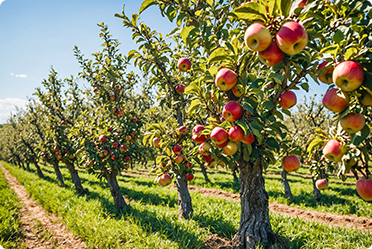
Choosing The Right Foundation
Every farm or ranch is a business at its core. And like any business, it needs the right legal foundation to survive threats, whether internal or external.
Fortunately, agricultural operations have access to the full suite of business structures available to other industries. Limited Liability Companies (LLCs), corporations, trusts, and partnerships are all tools we routinely use to help clients protect their land, equipment, and operations. For anyone navigating these decisions, getting tailored, farm business structure legal advice is essential, not just to choose the right entity, but to use it effectively.
What makes these tools powerful isn’t just what they are; it’s how they’re used. Often, we combine multiple structures to create layers of protection and flexibility tailored to each family’s unique needs. As I mentioned earlier, there’s no cookie-cutter solution in ranch planning. What works for a 10-acre hobby farm may be wildly different from what’s needed for a 5,000-acre cattle operation.
Long-Term Protection: Why Structure Matters
The legal structure of a ranching business isn’t just a formality; it’s a safeguard for the future. Here’s why it matters:
Taxation
A properly chosen entity can reduce or eliminate unnecessary estate taxes that often force families to sell off pieces of their land just to pay the bill. As an example, an often under-utilized planning technique for our clients who are Idaho residents but whose ranches extend into Oregon is to place the land in an Idaho LLC – often reducing or even eliminating the Oregon inheritance tax.
Asset Protection
The right structure can shield land and equipment from creditors, legal disputes, or divorcing heirs. We often use LLCs or trusts to accomplish this purpose. A trust created with your child or children in mind can even require that that your child or children obtain a prenuptial or postnuptial agreement prior to having access to the inheritance. An LLC operating agreement can incorporate provisions requiring that the member’s spouses have no interest in the company. These are just a couple of examples we often use in our practice.
Control During Transition
A well-structured business makes it easier to transfer management roles or ownership if the primary owner becomes incapacitated or passes away. Simply filing a certificate or organization or articles of incorporation with the Secretary of State is completely insufficient to accomplish this goal. There is much more to the process by way of structuring the transition options of members or shareholders properly in a written document in order to accomplish this goal.
Heir Disputes
Perhaps most importantly, a good legal structure can prevent conflict when heirs disagree about whether to keep or sell the land or equipment. Trusts are most often use for this purpose, but sometimes, an LLC or Corporation either alone or in combination with a trust is the right choice. Leaving some direction is certainly better than leaving the ranch to float in the direction of the laws of intestacy, which are the state’s default laws for people who do not plan.
I’ve seen too many ranches lost simply because no one took the time to prepare. Structures are far more than just technical. Think of them as emotional insurance, in essence, which help preserve peace in the family and the purpose of the operation.
When Business and Estate Planning Work Together
For farms and ranches, business planning and estate planning aren’t two separate paths. They’re two sides of the same coin. A thoughtfully structured business creates a strong foundation for distributing assets in a way that’s fair, strategic, and aligned with the owner’s legacy.
Let me give you an example. If a ranch owner becomes incapacitated, a well-organized LLC or trust can ensure that someone steps into the leadership role without chaos or legal limbo. If a child has been managing the day-to-day operations, that continuity can be preserved. The right documents can spell out exactly who gets what, when, and under what conditions, all without forcing a sale or triggering disputes.
And when the time comes to distribute the estate, everything is already in order. The land, livestock, and equipment are part of a cohesive plan, not a collection of assets waiting to be picked apart.
Real Families, Real Plans, Real Results
I’ve worked with dozens of families in Idaho who have successfully used legal structures to protect their land and pass it on the right way. In some cases, a simple revocable trust was all they needed to lock in the future. That trust ensured the land stayed in the family, avoided probate, and went directly to the child who was most committed to continuing the ranching legacy.
In other situations, we’ve helped clients set up irrevocable trusts, or an LLC or corporation alongside a trust, ensuring tax efficiency and managerial clarity. This allowed the ranch to keep operating smoothly while protecting it from risks tied to family disagreements or business liabilities.
The common thread? Every plan was crafted specifically for the particular family’s needs and goals, and every decision they made was intentional. Every family we’ve worked with walked away knowing they had taken a concrete step toward protecting their legacy.
Still Have Questions? Ready To Get Started?
For more information on farm business structure legal advice, an initial consultation is your next best step. Get the information and legal answers you are seeking by calling (208) 203-7876 (Meridian) | (208) 328-5795 (Emmett) today.
